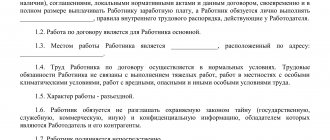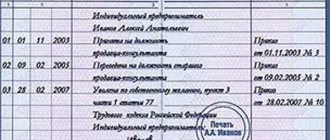Salaries calculated arbitrarily by an accountant are not subject to insurance contributions.
If the chief accountant regularly transferred to himself a salary in an amount greater than that stipulated in the employment contract, the amounts of such excess are not included in the contribution base.
Electronic requirements for payment of taxes and contributions: new referral rules
Recently, tax authorities updated forms for requests for payment of debts to the budget, incl. on insurance premiums. Now it’s time to adjust the procedure for sending such requirements through the TKS.
It is not necessary to print payslips
Employers are not required to issue paper payslips to employees. The Ministry of Labor does not prohibit sending them to employees by email.
"Physicist" transferred payment for the goods by bank transfer - you need to issue a receipt
In the case when an individual transferred payment for goods to the seller (company or individual entrepreneur) by bank transfer through a bank, the seller is obliged to send a cash receipt to the “physician” buyer, the Ministry of Finance believes.
The list and quantity of goods at the time of payment are unknown: how to issue a cash receipt
The name, quantity and price of goods (work, services) are mandatory details of a cash receipt (CSR). However, when receiving an advance payment (advance payment), it is sometimes impossible to determine the volume and list of goods. The Ministry of Finance told what to do in such a situation.
Medical examination for computer workers: mandatory or not
Even if an employee is busy working with a PC at least 50% of the time, this in itself is not a reason to regularly send him for medical examinations. Everything is decided by the results of certification of his workplace for working conditions.
Changed electronic document management operator - inform the Federal Tax Service
If an organization refuses the services of one electronic document management operator and switches to another, it is necessary to send an electronic notification about the recipient of the documents via TKS to the tax office.
Re-signing a fixed-term employment contract is the conclusion of a new fixed-term employment contract with a person who has already worked in the organization under such an agreement, which has expired.
Under the new contract, the employee can perform both the same and different work, and the contract itself can begin to operate immediately after the termination of the old one.
You can renew a fixed-term employment contract in two situations.
Situation 1. The employer may offer the employee a new job, the nature or conditions of which do not allow the conclusion of an open-ended employment contract. For example, a fixed-term employment contract was concluded with an employee to perform the duties of a temporarily absent employee who was on maternity leave. But by the time she was supposed to return from vacation, another employee had gone on maternity leave. In this case, a new fixed-term employment contract can be concluded with the employee to perform the duties of a second employee. Letter of Rostrud dated October 31, 2007 N 4413-6.
Situation 2. The employee belongs to one of the categories listed in Part 2 of Art. 59 of the Labor Code of the Russian Federation, and agrees to conclude a new fixed-term employment contract. For example, a person went to work under an employment contract concluded for a period of 2 years in an organization that is a small business entity. the number of employees of which does not exceed 35 people Art. 59 Labor Code of the Russian Federation. After the expiration of the employment contract, with the consent of this employee, a new fixed-term employment contract can be concluded with him.
To renew a fixed-term employment contract you must:
1) dismiss the employee due to the expiration of the employment contract;
2) rehire him under a new fixed-term employment contract.
Attention! Repeated conclusion of fixed-term employment contracts for a short period to perform the same work may lead to the fact that the court, at the request of the employee or the labor inspectorate, recognizes the contract as indefinite Art. 58 Labor Code of the Russian Federation, clause 14 of the Resolution of the Plenum of the Supreme Court of March 17, 2004 N 2.
When should a fixed-term employment contract be renewed? >>>
Is it possible to terminate a fixed-term employment contract early, including at the initiative of the employee? >>>
Additionally in ConsultantPlus Guides
Read more about renewing a fixed-term employment contract in the Guide to Personnel Issues “How to Hire” >>>
Newsletter for an accountant
Every day we select news that is important for an accountant’s work, saving you time.
Receive free accounting news by email.
How to renew an employment contract?
In order to comply with the law, we need to renew employment contracts with department employees. Do we have the right to renew employment contracts? What do I need to do? Issue an order about this? or something extra?
No, the renegotiation of contracts is not provided for by law. You can draw up employment contracts in a new edition.
This procedure is problematic. Therefore, if there is a need to change the type of employment contracts, the best option would be to draw them up in a new edition ( see appendix to the answer below
). That is, an additional agreement is drawn up for employment contracts with employees, which specifies a new version of the employment contract. This method is optimal and recommended for use in the described case.
Details in the materials of the Personnel System:
Additional agreement to the employment contract dated February 27, 2007
№
116
"Alpha"
.
hereinafter
referred to as Director Alexander Vladimirovich Lvov
.
acting on the basis of the charter
.
on the one hand, Anna Vasilievna Dezhneva
.
hereinafter
referred to as in connection with changes to the staffing table and the Bonus Regulations of Alpha,
entered into this additional agreement and agreed to make changes and additions to the employment contract dated
February 27 2007
No.
116
. presenting it in a new edition:
1. GENERAL PROVISIONS. SUBJECT OF THE EMPLOYMENT AGREEMENT
1.1. According to this employment contract, the Employee is hired by the Employer to perform work as an accountant
.
1.2. This employment contract regulates labor and directly related relations between the Employee and the Employer.
1.3. Work under this employment contract is the main thing
place of work.
1.4. The Parties set the Employee's start day as February 27, 2007
.
1.5. Before signing this employment contract, the Employee is familiarized by the Employer, against signature, with the Internal Labor Regulations and other local regulations directly related to the Employee’s work activities.
6. FINAL PROVISIONS
6.1. This additional agreement (new version of the employment contract) comes into force on April 6, 2013
.
6.2. From the date of entry into force of this additional agreement, all previous versions of the employment contract dated February 27, 2007.
№
116
are not applicable.
6.3. This additional agreement is drawn up in two copies having equal legal force, one of which is kept by the Employer and the other by the Employee.
Popular questions
Which local acts can be waived from 2017
Starting from 2020, employers or individual entrepreneurs have the right to waive all or some local regulations. So, for example, you can abandon the internal labor regulations, regulations on wages and bonuses, and others. In this case, you can continue to apply the shift schedule.
However, there are some documents that are best continued to be used in 2020. An example is a vacation schedule. For more information about this, see “Standard employment contract: who, why and when can conclude it.”
Fixed-term employment contract: how to extend it, renew it or terminate it
September 22, 2016
Last time we looked at issues related to concluding an employment contract for a certain period (see “Fixed-term employment contract: instructions for use”). However, as practice shows, problems arise even after the contract is concluded - for example, when it is terminated. Of course, the presence of a condition on the duration of the contract facilitates the procedure for parting with an employee. But, despite this, the employer is required to pay increased attention to such details as the terms of termination specified in the contract and notification of upcoming dismissal. One should also take into account the risks that arise when re-concluding and extending a fixed-term employment contract. In this article we will tell you what issues regarding relationships with “temporary” employees an employer should pay special attention to.
Early termination of a fixed-term contract at the initiative of the employee
The organization entered into an employment contract with the employee for a period of one year. A month later, the employee wrote a letter of resignation. Does he have the right to resign before the end of the contract?
Termination of an employment contract before its expiration occurs according to the same rules that apply when terminating open-ended contracts. The fact is that Article 77 of the Labor Code, which contains a list of grounds for termination of an employment contract, does not distinguish between a fixed-term and an open-ended contract. Thus, a temporary employment contract can be terminated before the expiration of the period specified in it not only at the initiative of the employer, but also at the request of the employee (Article 80 of the Labor Code of the Russian Federation, paragraph 22 of the resolution of the Plenum of the Supreme Court of the Russian Federation dated March 17, 2004 No. 2), and also by agreement of the parties (Article 78 of the Labor Code of the Russian Federation, clause 20 of the resolution of the Plenum of the Supreme Court of the Russian Federation dated March 17, 2004 No. 2) and due to circumstances beyond the will of the parties to the agreement (Article 83 of the Labor Code of the Russian Federation).
If the company has a new CEO...
» » » A change of general director is not an ordinary case, but it is also not uncommon. When there is a change in CEO, company shareholders, business executives, accountants and HR staff may have many questions.
So, what documents need to be drawn up when changing the CEO?
Which authorities need to be notified? How to correctly draw up an order for the dismissal of a director?
What must be indicated in the minutes of the meeting of LLC participants when changing the director? To solve these problems, we offer you our professional assistance.
Business owners draw up a protocol on the change of manager. The minutes indicate the date of appointment of the new general director.
If the business owner is the only participant, a decision is drawn up. Based on the protocol (or decision), orders are issued on the resignation of the previous manager and the assumption of the position of a new one.
When changing the general director of an LLC, you must fill out a special application form. In this case, no state duty is paid. The application on form p14001 is filled out by the new general director, because in practice, most often he is the applicant. His signatures are certified by a notary. An important condition is the deadline for submitting this form to the Federal Tax Service. It is three days from the date the new manager takes office, specified in the protocol (or decision).
How to properly fire an employee on a fixed-term contract
The organization dismisses the employee due to the expiration of the employment contract concluded for one year in connection with the expansion of production. However, the employee threatens to sue for being fired without warning. Is it really necessary to warn the employee about dismissal in this case? If yes, then how to do it correctly?
The answer to the question of whether it is necessary to notify an employee of the termination of a fixed-term employment contract depends on the basis for concluding such a contract. Thus, if the contract is concluded for the duration of the duties of an absent employee or to perform work whose completion date is not determined, then it is not necessary to notify the employee of the upcoming dismissal. But if the contract is drawn up for a specific period (that is, it specifies a specific end date), then the employee really needs to be notified of the termination of the contract. This must be done in writing at least three days before the expiration date of the contract (this day will be the last day of the person’s work, which means the day of his dismissal; Article 84.1 of the Labor Code of the Russian Federation). The notice must be given to the employee against signature. Such rules are established in Article 79 of the Labor Code of the Russian Federation.
The notification is drawn up in any form. It must indicate the name of the employer, full name of the employee, date and number (if any) of the employment contract. It is also necessary to clearly indicate that this document is a notice of termination of the employment contract due to the expiration of its validity period and is drawn up in accordance with Article 79 of the Labor Code of the Russian Federation. Next, the notice indicates the date of termination of the employment contract (it must coincide with the date fixed in the contract itself) and the current date is indicated. On the employer's part, the notice is signed by the manager or other authorized person. It is advisable to draw up two copies of the notice, one of which will be given to the employee, and the second - with the employee’s signature on receipt - will remain in the organization. This will help eliminate disputes about whether the notice was drafted correctly.
Please note: the illness or absence of an employee with whom a fixed-term contract has been concluded is not grounds for its extension. Therefore, even if a temporary employee is absent from the workplace, he still must be notified of the upcoming dismissal.
At the same time, the Labor Code does not stipulate any consequences for cases when the notice described above is not served. Therefore, the employer has the right to dismiss an employee due to the expiration of the employment contract, even if no notice was sent. It is clear that this will create certain risks for the organization. In particular, the lack of notification of upcoming dismissal is a violation of labor laws. And if this fact is detected in a timely manner (that is, within a year; Article 4.5 of the Code of Administrative Offenses of the Russian Federation) by the labor inspectorate, the organization may be brought to administrative responsibility on the basis of Article 5.27 of the Code of Administrative Offenses of the Russian Federation.
Please note that the employee who challenges the dismissal must justify the violation of his rights. “By default,” the courts proceed from the fact that failure to comply with the requirements of Article 79 of the Labor Code of the Russian Federation on notifying an employee of the termination of an employment contract due to its expiration is not grounds for declaring the dismissal illegal. After all, when concluding a temporary employment contract, the employee knows both about its urgent nature and about its expiration date. And the Labor Code, as already noted, does not regulate the issue of the consequences of untimely notification of an employee about the upcoming termination of a fixed-term employment contract (see, for example, the appeal ruling of the Moscow City Court dated 02.02.16 No. 33-3252/2016).
If the director has changed, what to do with contracts?
Therefore, the party to the agreements, which, we repeat, are concluded on behalf of the LLC by its director, is the company itself, and it is the company itself, and not the person who signed the agreement on its behalf, who has the rights and obligations provided for in the relevant agreement (clause 2 of Article 307 , Article 308, paragraphs 1, 3, Article 420 of the Civil Code of the Russian Federation). Answer from Anechka[guru] Definitely! Answer from Lisa[guru] Definitely! The answer from Kysya [guru] yes! If it were the other way around, then we could make an additional agreement! The answer from Irina Latysheva[guru] in my opinion is quite additional. agreements with the consent of both parties... Answer from Yergey Bondarenko[guru] Of course it is necessary. This is one of the main parameters of the agreement.
Taxpayer identification number Indicated for employers, with the exception of employers - individuals who are not individual entrepreneurs.
Or do you not need to do anything at all, but leave everything as it is? Zulfiya Burnasheva, lawyer, leading specialist in legal issues and personnel records management at the Center for the Development of Personnel Technologies, 7 years of experience in personnel work, expert at the magazine HR officers are arguing Author Message 3010689 Our director has changed.
Most often, the duration of the employment contract, the name of the organization (if it is changed), the employee’s salary, the position held, the legal address of the employer, etc. change.
Zulfiya Burnasheva Susan Bates Speak like the first leader. Secrets of attracting attention and achieving results L. A. Lenkevich Secretary-referent.
Our director has changed. Is it necessary to make changes to employees’ employment contracts in this regard? I think it’s not necessary, but the chief accountant tortured me - he wants all the employees, and there are 150 of them, to make additional agreements to their employment contracts.
The main thing is that at the time of concluding the employment contract, all the information included in its text was true.
In addition, the need to introduce various amendments must be justified by the management of the organization with the provision of appropriate evidence.
Voting: Article 56 of the Labor Code of the Russian Federation defines an employment contract as an agreement between an employee and an employer. In this case, the employer is understood as an individual (if the employment contract is concluded with an individual entrepreneur) or a legal entity (organization) that has entered into an employment relationship with an employee (Part 4 of Article 20 of the Labor Code of the Russian Federation).
Indicated for employers, with the exception of employers - individuals who are not individual entrepreneurs. In this case, we are interested in the employer - a legal entity, so further we will talk about him.
Of course, the HR manager is not spared such changes. For example, the employment contracts of most employees were signed by the former general director.
Our information In labor legislation, in principle, there is no concept of “renewal of an employment contract”. The possibility of re-signing an employment contract is provided as an exception only for employees sent to work at a representative office of the Russian Federation abroad.
So what should we do with them now? Re-register? Just change the first page? Sign additional agreements? Or do you not need to do anything at all, but leave everything as it is?
Thus, the election of a new head of an LLC does not entail the need to make any changes to the agreements previously concluded by the company, signed by the previous head, or to “re-sign” (re-sign) such agreements (see, for example, the decision of the Fourteenth Arbitration Court of Appeal dated 18 April 2012
Of course, nothing bad will happen if the employment contracts are signed by a new director, I.I. Ivanov, instead of the former director, P.P. Petrov. But why start this useless work, distract HR department specialists and workers who will need to sign new employment contracts from everyday affairs? There is no point in conflicting with the new manager about this.
No. 14AP-1923/12, resolution of the Eleventh Arbitration Court of Appeal dated November 3, 2011. No. 11AP-11662/11, resolution of the Federal Arbitration Court of the Far Eastern District dated January 29, 2010. Reply from 2 replies [guru] Hello! Here is a selection of topics with answers to your question: Is it necessary to renew the contract if the client’s only company name has changed, but the details remain the same? Do I need to change my diploma when changing my last name? Do I need to change my TIN when changing my last name or place of residence? tags: Change of surname DO YOU NEED TO CHANGE YOUR PASSPORT WHEN CHANGING YOUR SURNAME AFTER MARRIAGE? We are going to Turkey.
If the contract has expired but the work has not been completed
The organization entered into fixed-term employment contracts with a team of construction workers to perform temporary work on the construction of the facility. The contracts indicate that they are drawn up to perform temporary (for a period of no more than two months) construction work. The event that determines the completion of work is listed in the contract as “completion of construction.” But due to the slow work of the team, the facility was not built in two months. Is it possible in this case to dismiss employees due to the expiration of their contracts?
When concluding a fixed-term employment contract, the employer must remember the need to strictly follow the conditions for termination of the contract that are recorded in it. Therefore, if the moment of termination of the contract is determined by the occurrence of an event, in particular, the completion of construction of the facility, then termination of the contract before the actual completion of construction will be unlawful. Indeed, according to the rules of Article 79 of the Labor Code of the Russian Federation, an employment contract concluded for the duration of certain work is terminated upon completion of this work. This means that if a dispute arises regarding the dismissal of an employee, the organization will have to confirm that at the time of his dismissal the work was actually completed. That is, she will have to submit the relevant acts (acceptance, commissioning, etc.). It will not be possible to terminate an employment contract to perform temporary work due to the expiration of the two-month period established in Article 59 of the Labor Code of the Russian Federation as the maximum period for which such an agreement can be concluded.
Therefore, in the situation under consideration, the employer will either have to resolve the issue of extending (renegotiating) employment contracts, or dismiss employees “under the clause”. For example, on the basis of clause 5 of part 1 of Article 81 of the Labor Code of the Russian Federation in connection with repeated failure to fulfill one’s job duties without good reason. However, in this case, it is necessary to correctly and in advance take the actions necessary for such dismissal. In particular, it is necessary that employees be subject to disciplinary action (reprimand or reprimand) during the period of performance of work (i.e. before the expiration of two months).
Is it necessary for employees to enter into a new employment contract when changing the director of an LLC?
Any innovations must be carried out in strict compliance with the interests of the employee. Failure to comply with this law will result in penalties.
Civil rights and obligations arise from the grounds provided for by legislation, as well as from the actions of citizens and legal entities, which, although not provided for by it, but due to the general principles and meaning of civil legislation give rise to civil rights and obligations.
And in general, as they say, they don’t go to someone else’s monastery with their own charter; it’s better for your chief accountant to mind his own business. There is no need to sign or renegotiate anything. What can I say, dear readers, a dispute among our forum members arose for a rather simple reason - confusion in determining who exactly in labor relations acts as an employer: the organization or its leader (in this case, the general director)? So that's where we'll start.
Extension of a fixed-term employment contract
When hiring a “seasonal” employee, the agricultural producer entered into an employment contract with him until August 31. However, the harvesting work was delayed. Is it possible to extend the contract period?
Formally, the Labor Code does not prohibit extending the term of an employment contract, and in some cases even directly orders this. For example, a temporary contract is extended upon the election of a teaching employee who belongs to the teaching staff, through a competition to fill a position previously occupied by him under a fixed-term employment contract (Part 8 of Article 332 of the Labor Code of the Russian Federation), or in the event of expiration of a fixed-term employment contract in the period of a woman’s pregnancy (Part 2 of Article 261 of the Labor Code of the Russian Federation).
However, judicial practice on this issue is contradictory. Thus, some judges believe that extending the term of an employment contract does not contradict the norms of the Labor Code and does not entail reclassification of the contract as unlimited-term. In this case, the arbitrators refer to the provisions of Article Art. 59 and art. 72 of the Labor Code of the Russian Federation (see the rulings of the Moscow City Court dated 01.20.14 No. 33-1433/2014, the Supreme Court of the Chuvash Republic dated 12.23.13 No. 33-4638/2013 and the St. Petersburg City Court dated 10.18.10 No. 33-14178/ 2010). But at the same time, the courts also make opposite decisions. The judges recognize that the extension of a fixed-term employment contract violates the rights of the employee and, in fact, we must assume that such an agreement was concluded for an indefinite period (see the rulings of the Omsk Regional Court dated 08.26.15 No. 33-6106/2015, the Moscow City Court dated 02.06. 12 No. 4g/3-114/12 and the Supreme Court of the Republic of Sakha (Yakutia) dated 02.05.12 No. 33-1380/12).
Conclusion: to avoid risks, we do not recommend drawing up additional agreements that change the validity period of fixed-term employment contracts.
If the general director has changed, is it necessary to renew the contract?
— Articles — If the general director has changed, is it necessary to renegotiate the contract?
Is it necessary to draw up additional agreements to previously concluded agreements with counterparties when changing the general director of an LLC? Or is an official information letter from the organization sufficient? Having considered the issue, we came to the following conclusion: When changing the general director of an LLC, it is not necessary to conclude additional agreements to previously concluded contracts. Rationale for the conclusion: By virtue of clause 2 of Art. 1, paragraph 1 art. 48, art.
49 of the Civil Code of the Russian Federation, a legal entity is an independent participant in civil law relations. It, on its own behalf, by its own will and in its own interest, acquires and exercises rights, and also bears responsibilities, doing this through its bodies acting in accordance with the law, other legal acts and constituent documents of a legal entity (Clause 1 of Article 53 of the Civil Code of the Russian Federation ).
The above also applies to limited liability companies, on whose behalf, by virtue of sub. 1 clause 3 art.
Some experts believe that if the information specified in the employment contract changes, there is no need to conclude an additional agreement with employees; these changes must be indicated directly in the text of the contract itself. This conclusion follows from Part 3 of Art. 57 of the Labor Code of the Russian Federation, which provides for the possibility of entering missing information directly into the text of the employment contract.
e.
Zulfiya Burnasheva Susan Bates Speak like the first leader. Secrets of attracting attention and achieving results L.
A. Lenkevich Secretary-referent. Technique of typewriting articles International Labor Organization Convention No. 173 Concerning the Protection of Workers' Claims in the Event of Insolvency of the Employer (Geneva, 23 June 1992) General Conference of the International Labor Organization, convened in Geneva by the Governing Body of the International Labor Office and meeting on 3 June 1992 for its seventy-ninth session , Stressing the importance of protecting workers' claims in the event of an employer's insolvency and recalling the relevant provisions contained in Article 11 of the Security of Wages Convention 1949 and Article 11 of the Workers' Compensation Convention 1925. Industrial disputes: the distance is lengthening ?From January 1, 2012












